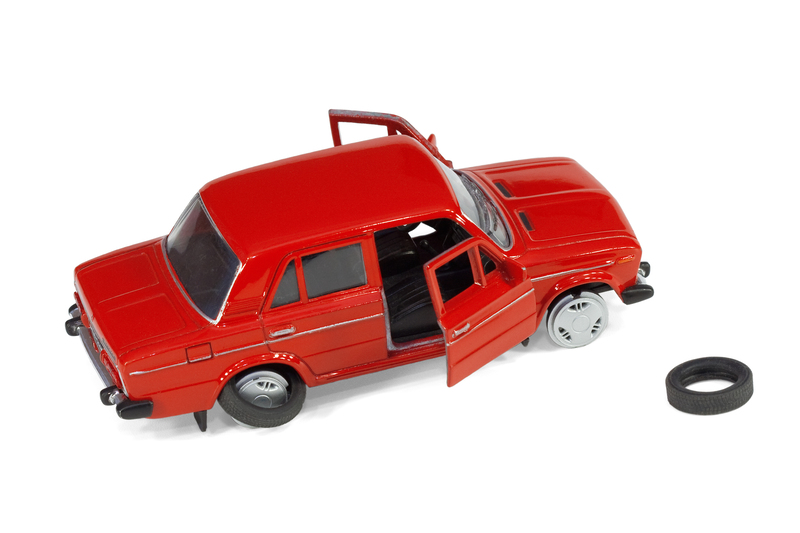Turn in Your Chargers for Responsible Disposal Options
Electronic devices have become a crucial part of modern life. As our gadgets evolve, so does the problem of electronic waste--one of the fastest-growing waste streams worldwide. Among various items contributing to this issue, phone chargers, laptop adapters, and other power accessories are often overlooked. If you have a drawer full of unused or broken chargers, it's time to turn in your chargers for responsible disposal. This article covers why responsible disposal is important, how to recycle old chargers, and the best options available in your area.
Why You Should Dispose of Chargers Responsibly
Before tossing that tangled charger into the trash, consider the impact. Most electronic chargers are made with plastics, metals, and even small amounts of hazardous materials. Improper disposal poisons the environment, wastes valuable resources, and exposes people and wildlife to danger. Responsible disposal of chargers is crucial for a sustainable future.
Environmental Impact of Charger Waste
- Leakage of toxic materials: Chargers can contain trace amounts of heavy metals such as lead, cadmium, or mercury. When left in landfill, these substances leach into the soil and pollute groundwater.
- Non-biodegradability: Plastics and metals in chargers take hundreds of years to break down, causing long-term environmental damage.
- Loss of precious resources: Chargers contain copper, gold, aluminum, and rare earth elements that can be reclaimed and reused.
Did you know? According to the Global E-Waste Monitor, over 50 million metric tons of e-waste are generated annually--and around 20% is properly recycled!

What Happens When You Throw Chargers in the Trash?
If chargers end up in a landfill, the effects are troubling:
- Soil Contamination: Harmful substances seep into the soil, harming plants and organisms.
- Water Pollution: Toxic metals leach into water supplies, threatening public health.
- Greenhouse Gas Emissions: Burning e-waste, often done informally, releases dangerous gases into the atmosphere.
By choosing to turn in your chargers for responsible disposal options, you play a part in breaking this destructive cycle.
Where to Turn In Your Chargers for Responsible Disposal
So, what should you do with your old chargers? Instead of throwing them away, look for ethical and eco-friendly disposal options. Here are some top suggestions:
1. Electronics Retailers' Take-Back Programs
- Many large electronics retailers offer in-store recycling bins for small electronics and accessories.
- Retailers like Best Buy, Staples, and Apple have established recycling programs. Simply drop off your chargers during your next visit.
- Check with your local retailer or visit their website for accepted items and any restrictions.
2. Local E-Waste Recycling Centers
- Most cities have dedicated e-waste collection sites where residents can dispose of old electronics, including chargers.
- Use online resources like Earth911 or local government websites to find the nearest e-waste drop-off point.
3. Community Collection Events
- Municipalities and environmental organizations frequently organize e-waste collection drives. These events are ideal for responsibly turning in chargers and other gadgets.
- Check local event calendars or community boards for upcoming opportunities.
4. Mail-In and Manufacturer Recycling Programs
- Many brands encourage customers to mail back old chargers and cables for recycling.
- Some programs provide postage-paid shipping labels; others may offer store credits or rewards.
- Check your charger manufacturer's website for details on their recycling programs.
5. Nonprofit and Charity Organizations
- Some nonprofits refurbish old electronics for people in need or safely recycle them to support their mission.
- Examples include Goodwill, Call2Recycle, and local charities.
How to Prepare Your Chargers Before Disposal
Before you turn in old chargers for recycling, a few simple steps improve safety and efficiency:
- Untangle cords and remove rubber bands, twist ties, or tape.
- Coil cables neatly--avoid sharp bends that could damage internal wires.
- Remove batteries if your charger has any removable cells. Recycle batteries separately, following local guidelines.
- Wipe down to remove dust or grime.
- Place in a clear bag or box if required by the recycler, to prevent items from getting lost.
Always confirm with your chosen recycling service about their specific requirements.
Responsible Charger Disposal: What Happens Next?
Ever wondered what happens after you turn in your chargers for recycling? Here's an overview:
- Sorting: Recyclers separate chargers based on material type, size, or functionality.
- Dismantling: Machines or workers disassemble chargers into components--plastic cases, wires, circuit boards.
- Material Recovery: Valuable metals like copper, aluminum, and sometimes a small amount of gold are extracted and sold to manufacturers for new products.
- Responsible Disposal: Non-recyclable parts are disposed of in an environmentally-safe manner.
This process reduces landfill waste, protects natural resources, and promotes a circular economy.
Additional Tips for Responsible Charger Management
- Buy only what you need: Before purchasing a new charger, check if you already have a spare that works for your device.
- Choose quality over quantity: Invest in a robust, universal charger to minimize replacements.
- Repair if possible: Some broken chargers can be fixed instead of replaced. Look for local repair shops.
- Donate working chargers: Schools, nonprofits, and shelters may accept donations if your charger is still functional.
- Spread the word: Encourage friends, colleagues, and family to dispose of their electronic accessories responsibly.
The Role of Legislation and Producer Responsibility
Many countries are enacting e-waste legislation to mandate responsible collection, recycling, and reporting. "Extended Producer Responsibility" (EPR) laws require manufacturers to take back used products, promoting eco-friendly design and recycling infrastructure. Supporting such policies--by choosing brands that prioritize sustainability--multiplies the effect of your responsible actions.
The Future: Universal Chargers & Reducing E-Waste
The European Union recently made headlines with its directive to standardize device charging (such as requiring USB-C for new phones). This move could greatly reduce the number of orphaned or obsolete chargers--and inspire other regions to follow suit. Keep an eye on new regulations in your country and urge manufacturers to embrace universal solutions, reducing charger disposal needs in the future.
Innovations in Charger Recycling
The world of recycling is rapidly changing. Some recyclers use advanced processes--such as hydrometallurgy and pyrometallurgy--to recover even trace metals efficiently. Brands are experimenting with closed-loop systems, turning recovered materials from old chargers into new products.
FAQ: Responsible Charger Disposal Options
- Can I put chargers in my household recycling bin?
No. Chargers contain conductive metals and electronics that can't be safely processed alongside bottles and cans. Use specialized e-waste recycling options instead. - What about wireless chargers and charging pads?
Yes, these items also count as electronic waste and should be disposed of responsibly through e-waste channels. - Does responsible charger recycling cost money?
Most local drop-off and retailer take-back programs are free. Some mail-in options may include a small fee for shipping, but many are pre-paid by manufacturers. - Is it safe to dispose of frayed or melted chargers?
Yes, but take extra care when handling damaged chargers. Avoid direct contact with exposed wires. Place them in a sealed bag and inform the recycler about their condition. - What should I do with old cables and adapters?
Recycle them alongside your chargers! Most programs accept cords, plugs, and adapters as well.

Conclusion: Be Part of the Solution--Turn In Your Chargers for Responsible Disposal
The next time you find an old charger in a drawer or closet, remember that it's more than just clutter--it's a small piece of the global e-waste crisis. Responsible charger disposal preserves natural resources, prevents pollution, and helps drive the shift toward a circular economy. By choosing to turn in your chargers for responsible disposal options, you're not only cleaning up your space, but also contributing to a healthier planet for future generations.
Take action today:
- Sort through your unused chargers and identify those to recycle.
- Locate the nearest drop-off point or explore convenient mail-in options.
- Encourage your workplace and community to organize a charger recycling event.
- Repeat the cycle--repair, reuse, and then recycle!
Let's work together to ensure our technology doesn't come at the Earth's expense. Turn in your chargers for responsible disposal--it's a simple step with a big impact.
Further Resources
- Earth911: Find local recycling centers
- Call2Recycle: Battery and charger recycling locator
- Staples Recycling Program
- Best Buy Recycling Options
- Apple Trade-In and Recycling
Every charger responsibly disposed of is a step forward in building a cleaner, greener future. Start today--your charger can make a difference!